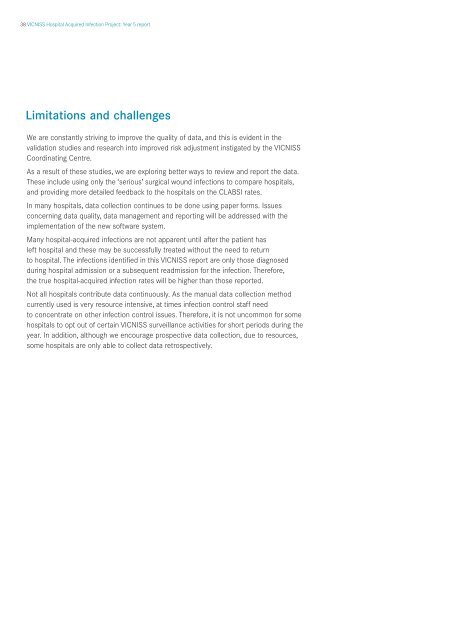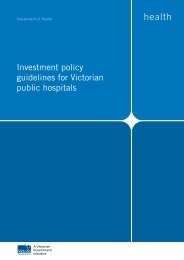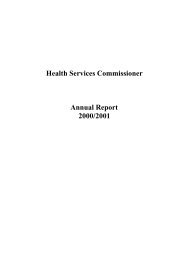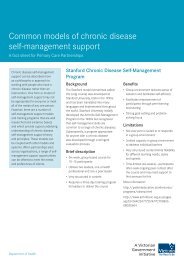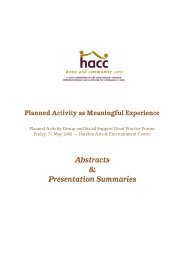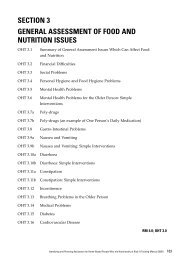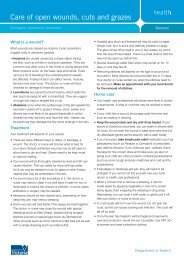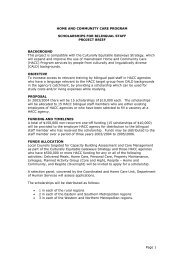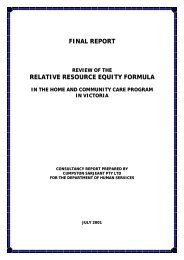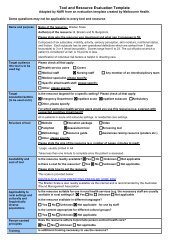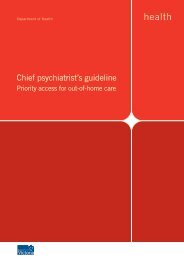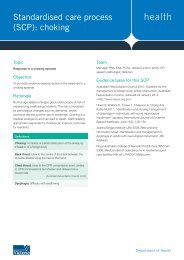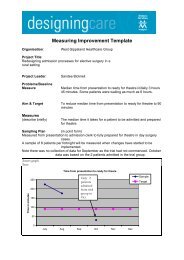VICNISS - Hospital Acquired Infection Project - Department of Health
VICNISS - Hospital Acquired Infection Project - Department of Health
VICNISS - Hospital Acquired Infection Project - Department of Health
You also want an ePaper? Increase the reach of your titles
YUMPU automatically turns print PDFs into web optimized ePapers that Google loves.
38 <strong>VICNISS</strong> <strong>Hospital</strong> <strong>Acquired</strong> <strong>Infection</strong> <strong>Project</strong>: Year 5 report<br />
Limitations and challenges<br />
We are constantly striving to improve the quality <strong>of</strong> data, and this is evident in the<br />
validation studies and research into improved risk adjustment instigated by the <strong>VICNISS</strong><br />
Coordinating Centre.<br />
As a result <strong>of</strong> these studies, we are exploring better ways to review and report the data.<br />
These include using only the ‘serious’ surgical wound infections to compare hospitals,<br />
and providing more detailed feedback to the hospitals on the CLABSI rates.<br />
In many hospitals, data collection continues to be done using paper forms. Issues<br />
concerning data quality, data management and reporting will be addressed with the<br />
implementation <strong>of</strong> the new s<strong>of</strong>tware system.<br />
Many hospital-acquired infections are not apparent until after the patient has<br />
left hospital and these may be successfully treated without the need to return<br />
to hospital. The infections identified in this <strong>VICNISS</strong> report are only those diagnosed<br />
during hospital admission or a subsequent readmission for the infection. Therefore,<br />
the true hospital-acquired infection rates will be higher than those reported.<br />
Not all hospitals contribute data continuously. As the manual data collection method<br />
currently used is very resource intensive, at times infection control staff need<br />
to concentrate on other infection control issues. Therefore, it is not uncommon for some<br />
hospitals to opt out <strong>of</strong> certain <strong>VICNISS</strong> surveillance activities for short periods during the<br />
year. In addition, although we encourage prospective data collection, due to resources,<br />
some hospitals are only able to collect data retrospectively.


